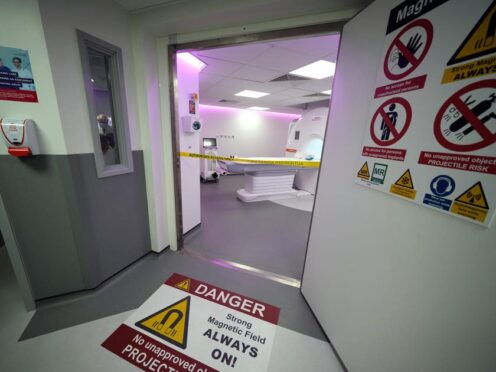
A cancer charity has invested hundreds of thousands of pounds in a platform using artificial intelligence (AI) to diagnose prostate cancer faster.
Lucida Medical – a University of Cambridge spin-out company – has developed Pi, which uses AI to detect prostate cancer cases from MRI scans.
Macmillan Cancer Support has backed the business with £350,100.
It is the second investment from its two-year £3.5 million Innovation Impact Investment Portfolio, which is backing start-ups developing innovative cancer care products.
According to the charity Prostate Cancer UK, about 52,000 men on average are diagnosed with prostate cancer in the UK each year, with 12,000 dying from the disease.
It is usually diagnosed using blood tests, MRI scans and biopsies.
Lucida Medical chief executive Dr Antony Rix said screening for prostate cancer “is associated with earlier stages of detection and better survival rates”, and the avoidance of “unnecessary biopsies can have a transformative impact on the NHS as well as on patients”.
Tanya Humphreys, director of innovation at Macmillan, said Pi “has the potential to transform the diagnosis of prostate cancer”.
The charity estimates there could be one million men living with the disease in the UK by 2040.
She added: “Integrating AI with MRI analysis, Pi offers a level of precision in diagnosis that could greatly enhance the accuracy and efficiency of prostate cancer detection.
“Our consultations with leading clinicians, people with cancer, and health technology experts have all attested to the likely impact of Lucida’s technology in reducing the rate of missed cancers and unnecessary biopsies, thereby improving patient outcomes and experience.
“We are really excited about the possibilities this partnership brings and are deeply committed to advancing cancer care in the UK.”
Professor Evis Sala, co-founder and chief medical officer at Lucida Medical, said: “We seek to give every radiologist technology that can precisely identify significant cancers, allowing more patients to benefit from early detection and treatment.
“At the same time, the accuracy of Pi could help reduce the numbers of prostate cancer-free men who undergo painful, potentially avoidable investigations, saving the NHS costs, helping address the shortage of radiologists, and cutting waiting lists.”
Professor Richard Simcock, chief medical officer at Macmillan, said AI “has the potential to avoid thousands of unnecessary biopsies, alleviating pressure on the NHS workforce and budgets”.
“For patients this would mean avoiding anxiety, unpleasant treatments and occasionally dangerous side-effects,” he added.
– Macmillan will support Lucida Medical with the development of Pi through its Innovation Community, which comprises people living with cancer.

Enjoy the convenience of having The Sunday Post delivered as a digital ePaper straight to your smartphone, tablet or computer.
Subscribe for only £5.49 a month and enjoy all the benefits of the printed paper as a digital replica.
Subscribe